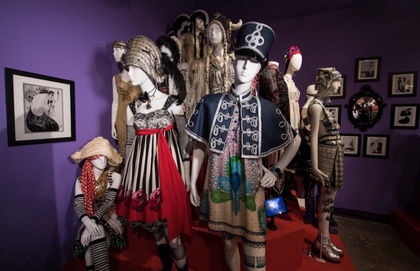Employment Opportunities in Museum
Сurate
In most museums, curates are usually retirees. Exhibitions include valuable and fragile items. A curate should care about them.
Usually, work experience is not required for this vacancy. The main character features are:
- attentiveness;
- friendliness;
- the ability to come in contact with visitors.
The work schedule is flexible, and if desired, can be combined with other activities. As a rule, caretakers do not have the right to tell visitors about the items. They should indicate which room to visit first and next. There is no career promotion – only if a person changes specialization.
Museum guide
It is the easiest way to get a job in a museum without a specialized education. The preference is given to people with higher education in the museum profile, sociable, without speech-pattern problems.
Tour organizer
Tour organizer is a person who governs excursion groups, keeps a preliminary record, arranges visit time, answers questions from visitors related to the work of the museum, considers statistics, accepts applications and draws up agreements with organizations. Work requires attention, good memory, concentration, as well as the ability to communicate with people. Often the organizer performs the duties of a manager. Special education is not necessary, there are no age restrictions, but work experience is desirable.
Warder
The warder is engaged in museum funds – accounting, documentation, preservation. He/she accepts museum objects for storage, registers, labels, organizes, monitors the storage mode. In the event the exhibition travels to another location, it is responsible for packing the items on a trip, studying the funds, conducting research work, determining which items need to be restored. The warder knows more than any museum guide about the history of an exhibition, its features, and uniqueness, but has no right to tell visitors about it.
Methodist
Methodological activities in museums are conducted in different directions:
- scientific;
- educational;
- museum-educational.
The museum staff usually has two methodologists. The person responsible for museum and educational activities works with children and adolescents – organizes lectures, open lessons, thematic quests, contests, and conferences; conducts sociological surveys of visitors about the educational activities of the museum, collects suggestions and wishes, is responsible for the publication of methodological documents and is engaged in the examination of educational programs.
The methodologist for scientific and educational activities develops a methodology for conducting exhibitions, works with tour organizers, monitors the quality of their work, prepares lectures, publishes scientific studies of employees and conducts scientific conferences, seminars, and round tables.
Researcher
This employee should have a higher education together with a scientific degree. Researchers are engaged in the scientific direction of the museum. They develop concepts for the museum in this area, take part in scientific conferences and seminars, travel to ethnographic and archaeological expeditions, conduct lectures for visitors, advise guides, study funds and write scientific articles related to museum exhibitions. Such a position is a good option for a humanitarian who wants to engage in practical science, work with artifacts and documents.
